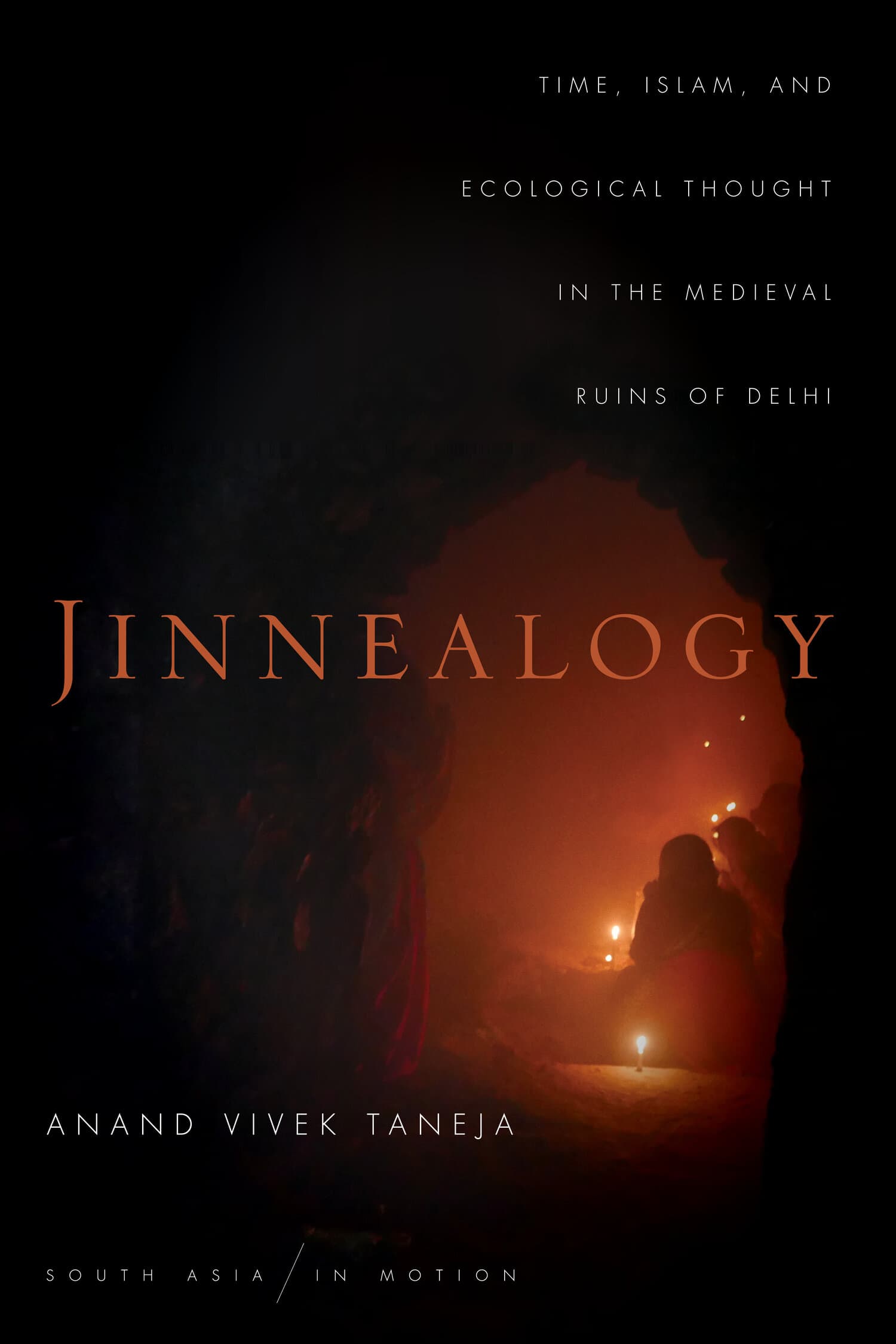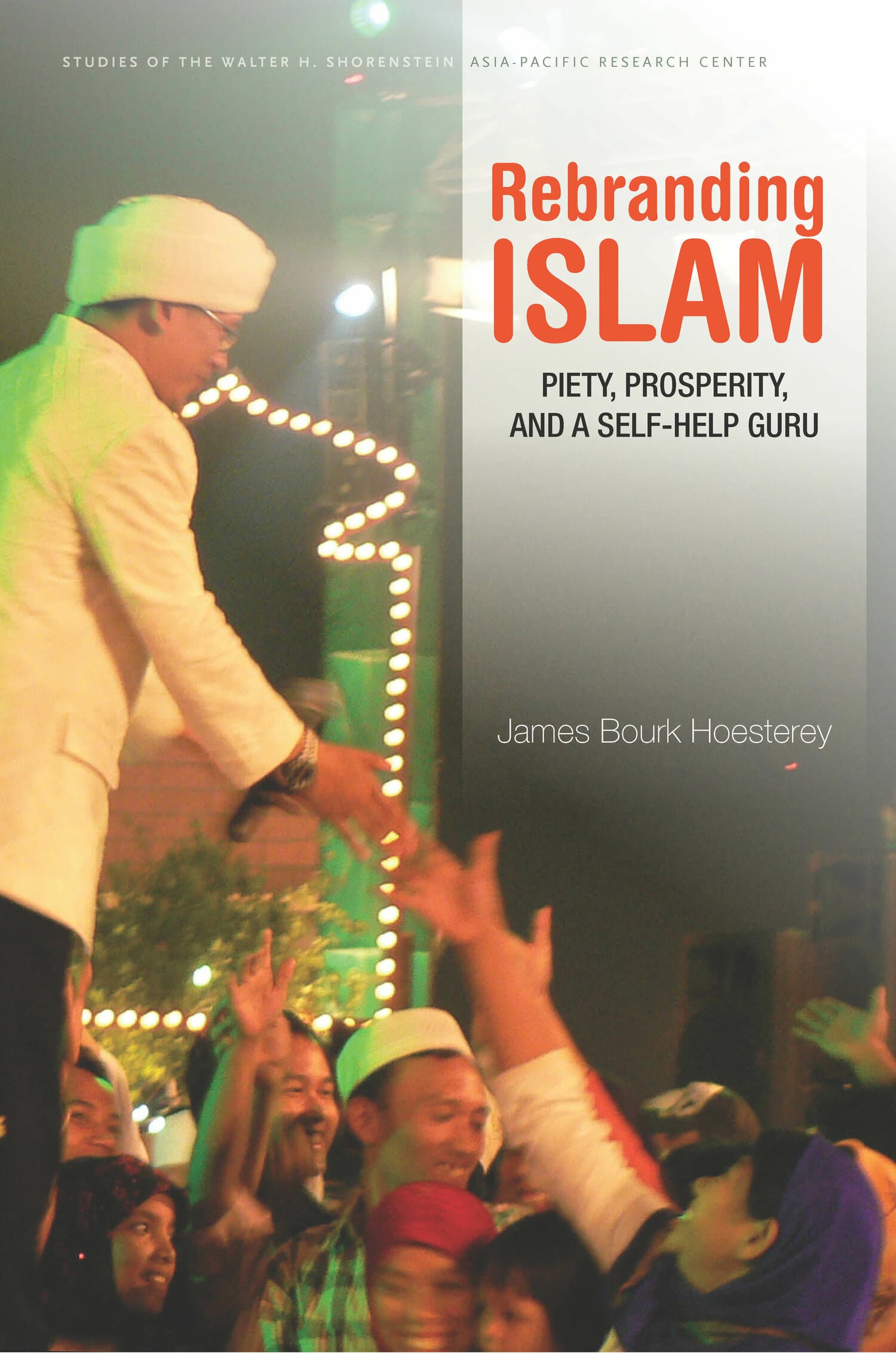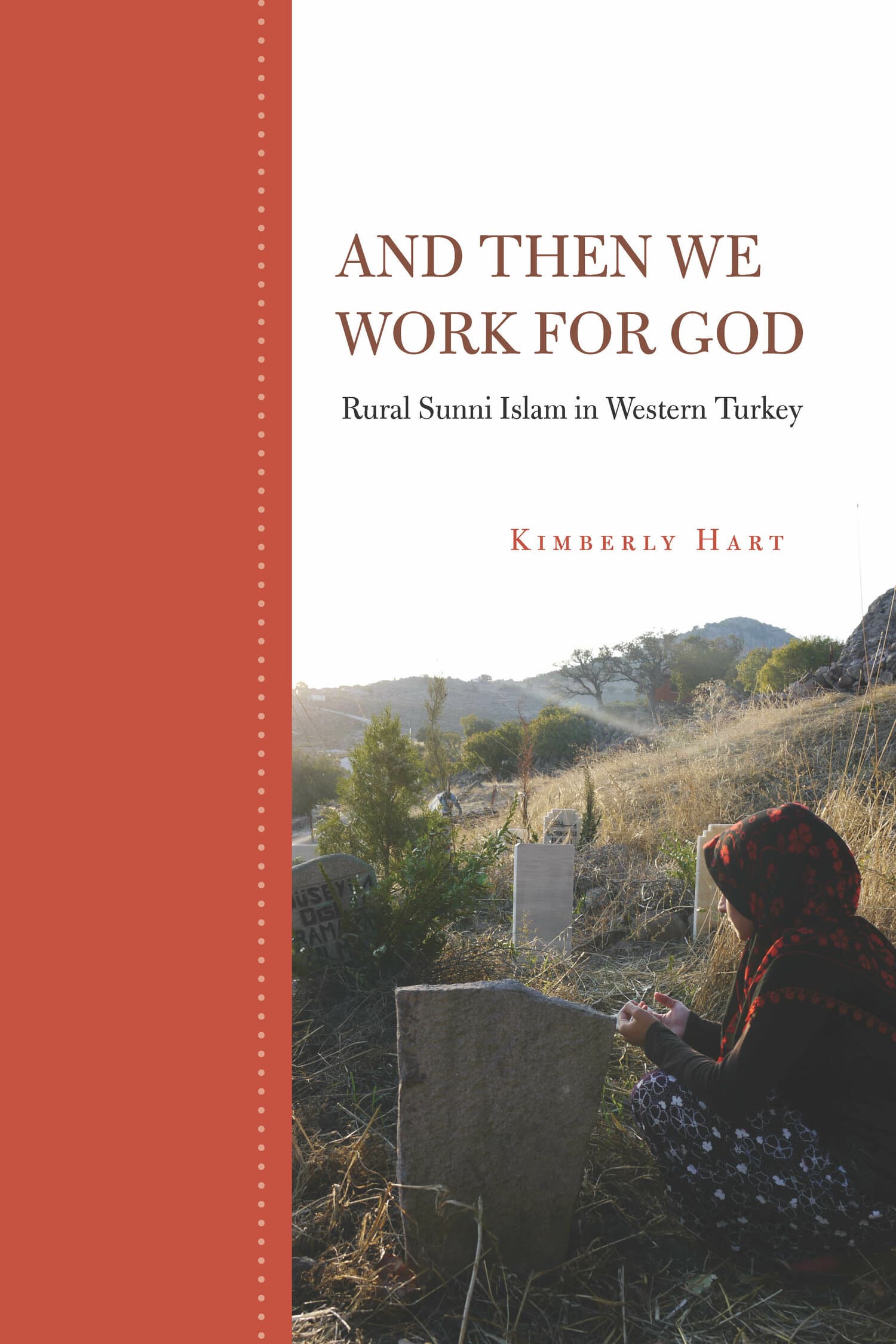Jinnealogy
Award Winner
2016: The Joseph W. Elder Prize in the Indian Social Sciences
Winner of the 2016 Joseph W. Elder Prize in the Indian Social Sciences, sponsored by the American Institute of Indian Studies2019: Gregory Bateson Book Prize
Honorable Mention in the 2019 Gregory Bateson Book Prize, sponsored by the Society for Cultural Anthropology.

In the ruins of a medieval palace in Delhi, a unique phenomenon occurs: Indians of all castes and creeds meet to socialize and ask the spirits for help. The spirits they entreat are Islamic jinns, and they write out requests as if petitioning the state. At a time when a Hindu right wing government in India is committed to normalizing a view of the past that paints Muslims as oppressors, Anand Vivek Taneja's Jinnealogy provides a fresh vision of religion, identity, and sacrality that runs counter to state-sanctioned history.
The ruin, Firoz Shah Kotla, is an unusually democratic religious space, characterized by freewheeling theological conversations, DIY rituals, and the sanctification of animals. Taneja observes the visitors, who come mainly from the Muslim and Dalit neighborhoods of Delhi, and uses their conversations and letters to the jinns as an archive of voices so often silenced. He finds that their veneration of the jinns recalls pre-modern religious traditions in which spiritual experience was inextricably tied to ecological surroundings. In this enchanted space, Taneja encounters a form of popular Islam that is not a relic of bygone days, but a vibrant form of resistance to state repression and post-colonial visions of India.
"Anand Taneja's book offers a fascinating ethnography of the dargah of Firoz Shah Kotla in Delhi, a place whose jinns are petitioned by their devotees, as if in a courtroom. It reflects the social complexity—and poetry—of this shared sacred site, which is also a liminal space transcending caste and gender barriers. More than a study of one structure, this book narrates the history of the capital-city of India through its ruins and monuments. It is a remarkably perceptive and thought-provoking analysis of the popular culture of North India."—Christophe Jaffrelot, Senior Research Fellow at CERI-Sciences Po/CNRS
"Anand Taneja's Jinnealogy is a brilliant and moving meditation on extraordinary attempts to recover a lost culture. Once you consider seriously the practice of writing letters to the jinn at a medieval ruin in Delhi, you will be drawn into an enchanted world. Highly recommended."—Carl W. Ernst, University of North Carolina at Chapel Hill
"This compelling book delves into India's enigmatic silences and unacknowledgeable memories in the aftermath of Partition. When genealogy and social memory fail, jinnealogy activates threads of desire and possibility unavailable to us in secular time. A beautiful and urgent book with a taste of Borges' stories."—Stefania Pandolfo, Author of Knot of the Soul
"When I return to the Kotla, I know that I will pay new attention to those who come to pray, and no longer just see them as nameless and faceless but as the people Taneja discovers through his fieldwork, the flesh and blood containing hope, despair, tears and anguish, and celebration."—Ranna Safvi, The Wire
"Anand Vivek Taneja's fluently persuasive study traces the role of jinns in the unusual social and religious space of a medieval ruin in Delhi. Along the way, his Jinneaologyoffers a surprising subaltern history of India's capital city....Jinnealogyis a rich and enriching book. As though meandering through medieval ruins, it takes its reader down unanticipated passageways, evocative detours, as well as some dusty dead ends. Along the way, it repeatedly offers unexpected vistas onto old issues such as secularism, heritage, and community....[T]he reader isirresistibly drawn into the stories of its diverse protagonists."—Sebastian R. Prange, Pacific Affairs
"The political intervention that this book makes in the field of the history and cultural heritage of South Asia is very timely. The erasure of Indo-Persian and Islamic culture from the modern nation state of India has reached a crisis point, and this book provides a poetic and creative interpretation of the sites where a shared popular Islamic aesthetic and interpretive community remains alive....[T]he book is an excellent, creative, exhaustively researched and beautifully written intervention into the ongoing debate on the erasure of Islamic cultural heritage from the modern nation state of India."—Nur Sobers-Khan, Global Intellectual History
"Taneja's book helps open the 'discursive tradition' to the mysteries of Islamic figuration—allowing traces, which are not signs, to be strange. His observations are gentle yet pressing, motivated by a deep sense of past possibilities, an urgency to make room for realms of Islamic tradition that need not be legible to be lived."—Emilio Spadola, The Immanent Frame
"Anand Vivek Taneja's Jinnealogy: Time, Islam, and Ecological Thought in the Medieval Ruins of Delhi is an elegant contemplation of the ruins of the fortress built by Firoz Shah Tughlaq, who ruled Delhi from 1351-88 AD....I am most especially taken, though, by the book's elegiac quality. Even while Taneja insists upon the liveliness of the life that has emerged on the neglected grounds of the fortress...the tone of the book remains persistently and appropriately mournful."—Naveeda Khan, The Immanent Frame
"Beautifully written....Jinnealogy constitutes an extended argument for gharib nawazi, the very kindness that opens up an aesthetics and an ethics that allow for compassionate and caring ways of being and acting in this world."—Petra Rethmann, American Ethnologist
"This book will be essential reading for those interested in the anthropology of religion, South Asian studies, and Islamic studies. Taneja's diverse ethnographic approach depicts the multiplicities of North Indian religion and culture. At a time of increasing Islamophobia in India and globally, Jinnealogy presents a compelling argument of possibility anchored in the discourse and history of a Muslim community that is essential to the city and culture of Delhi, past and present."—Jaclyn A. Michael, Reading Religion
"[Jinnealogy] is a shining example of what might be gained if researchers stop labouring to produce neat and linear narratives that establish unambiguous causal relationships....[It] is a harbinger of hope that the spatial turn in the social sciences does not effectively mean that history and time are irrelevant."—Ghazala Jamil, Contributions to Indian Sociology
"In this impressive and deeply personal monograph, Taneja draws on insights gleaned from years of fieldwork in Delhi to invite the reader on a fantastic journey....Written in sparkling poetic prose, Jinnealogy is a model of ethnographic and archival research combined with theoretical sophistication. Rare for academic tomes, you will not want to put this book down once you begin to digest its wisdom."—Patrick J. D'Silva, Religious Studies Review
"[This] book is a brilliant, evocative, and gripping account of Jinnealogy: the entanglements and traces of Jinn as a form of memory and practice that challenges the Hindu nation-state and dominant ideas of religion and social identity. The chapters capture attention, drawing the reader through historical details, ethnographic encounters, popular debates, and critical theory. It is an emblematic text for the Anthropology of Islam and South Asia."—Shaheed Tayob, ReOrient



